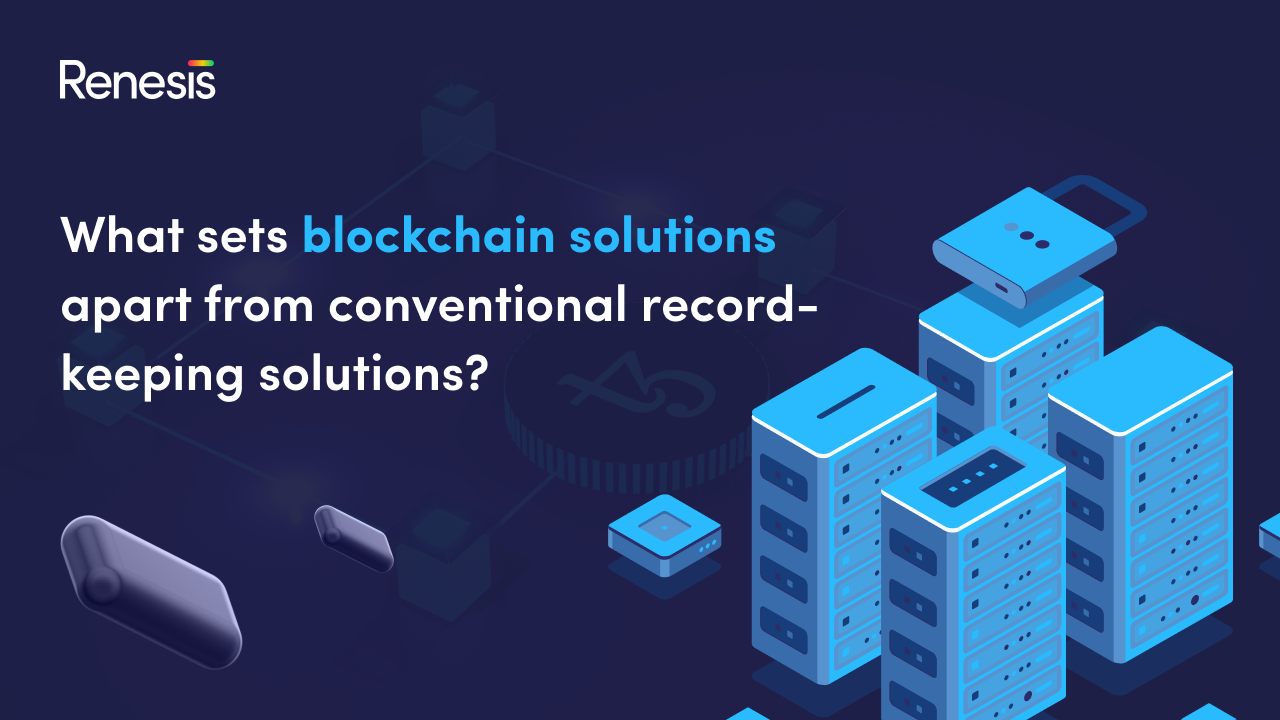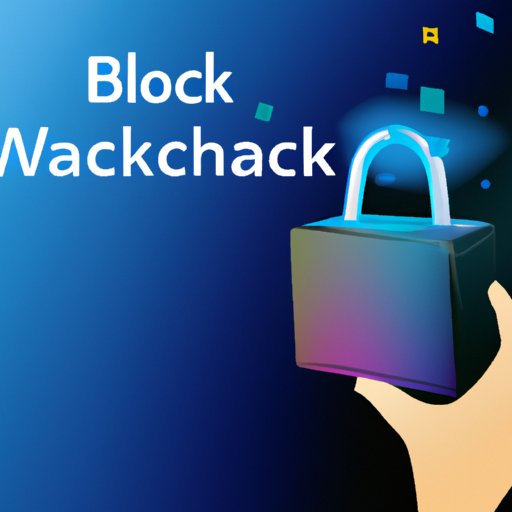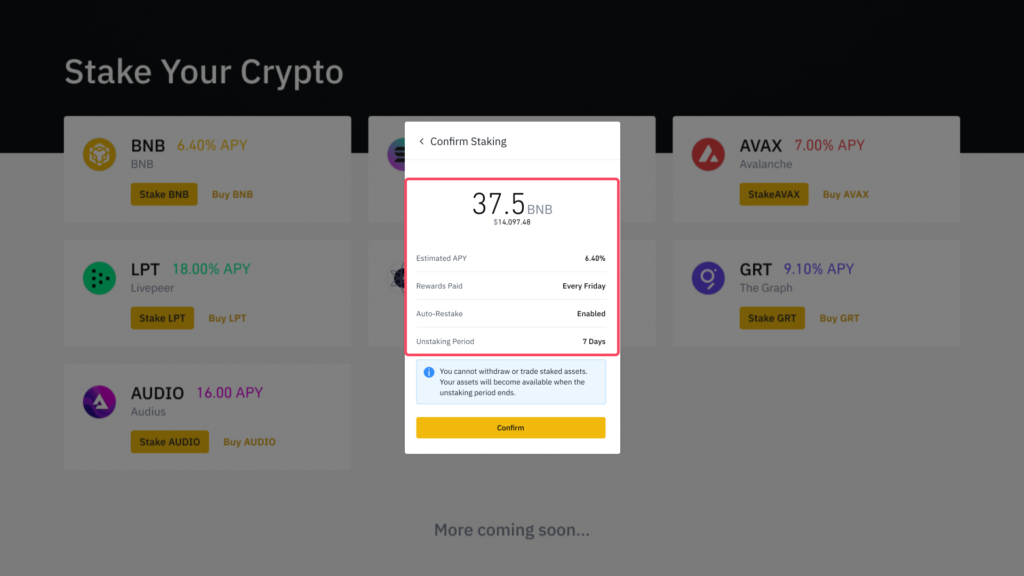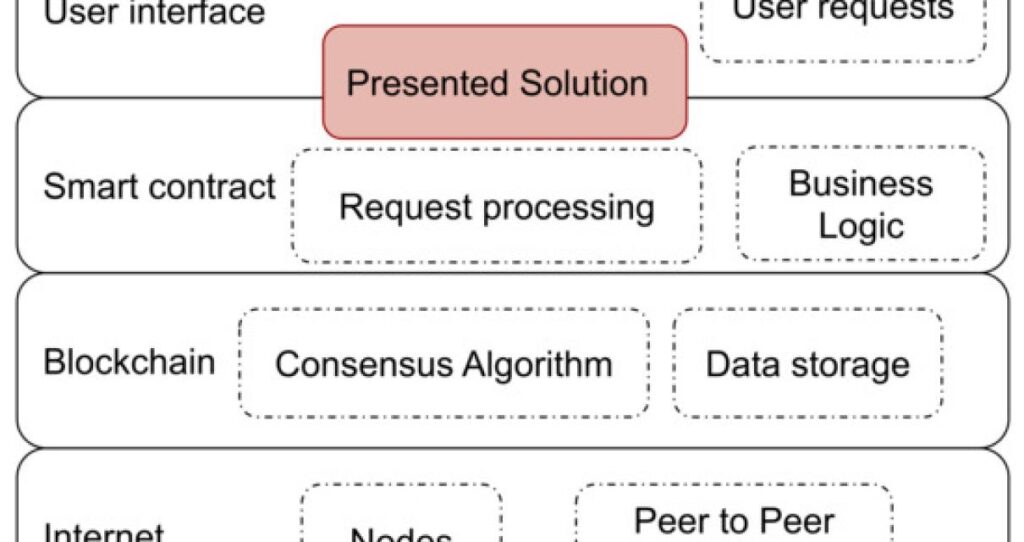As the world becomes increasingly digitized, businesses and organizations are looking for more secure and efficient ways to manage their data. Blockchain technology has emerged as a potential solution, with its decentralized and tamper-proof nature. But what sets blockchain solutions apart from traditional record-keeping solutions? In this article, we will explore the key differences between the two and highlight the benefits of using blockchain for data management.
At its core, blockchain is a distributed ledger that records transactions across a network of computers. Each block in the chain contains a cryptographic hash of the previous block, creating an unbreakable chain of data. This makes it virtually impossible for anyone to tamper with the data without being detected. Traditional record-keeping solutions, on the other hand, rely on centralized databases that can be vulnerable to cyberattacks and data breaches. By using blockchain, businesses can ensure the integrity and security of their data while reducing the risk of fraud and corruption.

What Sets Blockchain Solutions Apart From Conventional Record-Keeping Solutions?
Blockchain is emerging as a revolutionary technology that is transforming the way businesses and organizations store and share data. While traditional record-keeping solutions have been used for many years, blockchain solutions offer a number of advantages that make them a more viable option for organizations looking to store and share data securely. This article will explore what sets blockchain solutions apart from conventional record-keeping solutions.
Decentralized Nature
One of the key advantages of blockchain solutions is that they are decentralized. This means that instead of relying on a single server to store and manage data, the data is instead distributed across multiple nodes in a network. This makes blockchain solutions much more secure than conventional record-keeping solutions, as the data is not stored in a single location and is difficult to manipulate or hack. Furthermore, since the data is stored on multiple nodes, the system is much more resilient to outages and other disruptions.
Another benefit of the decentralized nature of blockchain solutions is that users can securely access the data from anywhere in the world. This makes it much easier for organizations to share and collaborate on data without having to worry about the security of their information.
Enhanced Security
Another major advantage of blockchain solutions is the enhanced security they provide. Blockchain solutions use cryptography and digital signatures to ensure that data is secure and only accessible to the intended users. Furthermore, the data is stored in a distributed ledger, which ensures that any changes to the data are visible to all users. This makes it much harder for hackers to manipulate or access sensitive data, making blockchain solutions much more secure than traditional record-keeping solutions.
In addition, blockchain solutions also make use of smart contracts, which are self-executing contracts that are stored on the blockchain. Smart contracts allow businesses and organizations to automate certain processes, such as payments, transfers, and even the tracking of assets. This makes it much easier for organizations to ensure that their data is secure and that any changes to the data are properly tracked.
Cost Savings
Finally, blockchain solutions also offer significant cost savings compared to traditional record-keeping solutions. Since the data is stored on a distributed ledger, there is no need for businesses to invest in costly infrastructure in order to store and manage data. Furthermore, blockchain solutions are much more efficient than traditional solutions, as they make use of automated processes and distributed networks. This makes it much easier for businesses to reduce their overhead costs and increase their profitability.
Overall, blockchain solutions offer a number of advantages compared to traditional record-keeping solutions. From enhanced security to cost savings, blockchain solutions are quickly becoming the preferred option for businesses and organizations looking to store and share data securely.
Frequently Asked Questions
Blockchain technology has been gaining attention due to its ability to provide secure, immutable, and transparent record-keeping solutions. This technology has the potential to revolutionize many industries and the way we conduct transactions and record data.
What sets blockchain solutions apart from conventional record-keeping solutions?
Blockchain solutions are different from conventional record-keeping solutions in several ways. The most important difference is that data stored on a blockchain is immutable, meaning it cannot be changed or tampered with. This makes it much more secure than traditional record-keeping methods, as it eliminates the risk of data being altered or corrupted. Additionally, blockchain solutions are decentralized, meaning that no single entity can control or manipulate the data stored on the chain. This creates more trust and transparency between users, as all data is visible to anyone with access to the blockchain. Finally, blockchain solutions often require less energy and infrastructure than conventional record-keeping solutions, making them more cost-effective and efficient.
Another key difference is that blockchain solutions are often more automated, with transactions and data being processed and stored automatically. This eliminates the need for manual, time-consuming processes, such as manual data entry or verification, making the process more efficient and secure. Additionally, blockchain solutions can be used to create “smart contracts,” which are automated contracts that are executed when certain conditions are met. This can help to reduce time and money spent on legal and administrative costs.
Real-World Business Problems Solved by Blockchain
In conclusion, the blockchain technology revolution has brought about a new era of record-keeping solutions that surpasses the conventional methods in various ways. The transparency and security that blockchain offers make it an excellent solution for businesses, organizations, and governments seeking to enhance their record-keeping processes. The ability to track every transaction and maintain an accurate, tamper-proof record ensures that there is no room for fraud, errors, or inconsistencies. Moreover, the decentralized nature of blockchain ensures that there is no single point of failure, making it a robust and reliable solution.
As the world continues to embrace blockchain technology, it is clear that this revolutionary solution is here to stay. Its unique features, such as immutability, transparency, and decentralization, make it an ideal solution for various industries, including finance, healthcare, supply chain management, and more. In the end, the benefits of blockchain solutions far outweigh those of conventional record-keeping methods, and businesses that adopt it stand to gain a competitive edge in the market. As technology continues to evolve, it is certain that blockchain will play an increasingly significant role in shaping the future of record-keeping solutions.



